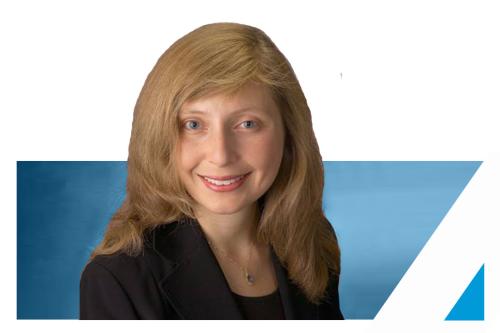Understanding Behavioral Development
In a video conversation with CCAS Dean Paul Wahlbeck, Professor Rosenblau discusses how social cognition develops in childhood, particularly for those with autism.


The foundation for almost any career in psychology, research plays a central role in both the undergraduate and graduate psychology programs. Several undergraduate courses require students to participate in a research component, and doctoral students master research methods in the focus area of their choice. Faculty often invite students to work side-by-side on their research projects, helping build mentoring relationships and practical experience. And there are many opportunities for students to showcase their work, from academic publication to presentations at professional conferences.
Many of the department’s funded research projects fall under the categories of health psychology or cultural diversity issues. Our faculty publish widely on topics including mental health and obstetrics care, suicide risks for gender and sexual minority groups, stressors and health outcomes among black men and stigmas surrounding HIV-prevention drugs.


When students get involved early with a research project, they are able to yield better results and stronger connections with faculty. Undergraduates are encouraged to pursue independent projects, in addition to required research credit hours.
Doctoral students engage in externally funded research projects throughout their studies, primarily focusing on health psychology or cultural diversity. The department also offers dissertation fellowships and access to GW’s many research funding sources.
"I was able to participate in and develop original research during my time in the clinical psychology program. My mentors helped me develop a grant that was funded as an NIH National Research Service Award."
Diana Shellmer
PhD '05

The GW Psychology Subject Pool is a research resource for faculty and students. Undergraduate students use the pool to sign up for required department research participation. Faculty and graduate students may use the pool to conduct research with university participants. All research conducted through the subject pool has been approved by the GW Office of Human Research and all researchers are committed to the ethical and responsible conduct of research.
Subject Pool Participant Sign-Up
The Office of the Vice President for Research provides information and support for undergraduates, postdoctoral scholars and faculty. The site offers proposal development resources, university award and fellowship guidance as well as forms and trainings to help researchers apply for external funding.
The Office of Human Research works with the Institutional Review Board (IRB) to review all research projects involving human subjects and ensure that all investigators have received training in ethics and the responsible conduct of research.

Understanding Behavioral Development
In a video conversation with CCAS Dean Paul Wahlbeck, Professor Rosenblau discusses how social cognition develops in childhood, particularly for those with autism.

Outside-In: Psychology Major Rafael Castro Redefines the Modern Big Man
Once a guard, GW’s preseason All-A-10 star brings versatility, poise and belief to a team that kicks off a highly anticipated season Saturday against Georgetown.

Champion Swimmer Dives into Nutrition Platform
Senior psychology major and A-10 champion swimmer Ganesh Sivaramakrishnan launched PowerPlatez, an app designed to help busy people eat smarter while saving time and money.

Imagine That: Professor Pictures Unique Mind’s Eye
Psychology’s Sarah Shomstein was skeptical of aphantasia, a phenomenon where people lack mental imagery. Then she looked inside her own head.

Fear of Failing: The Secrets Behind Social Anxiety
For the 40 million Americans with social anxiety disorder, even casual encounters can be paralyzing. Psychology’s Fallon Goodman helps them make connections.
